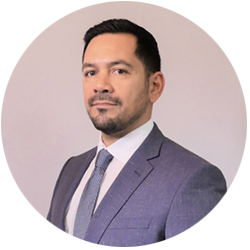Experiencing a personal injury can be a life-altering event, leading to physical pain, emotional distress, and financial burdens. If you find yourself in this unfortunate situation and decide to seek justice through the legal system, understanding the trial process is crucial. In Florida, personal injury trials follow a structured procedure that aims to ensure fairness and allow both parties to present their case comprehensively. At Victory Law Firm P.A., we are committed to guiding you through every step of this journey, ensuring you are well-prepared and confident as you enter the courtroom.
The Lawsuit Process
The journey to a personal injury trial often begins with filing a lawsuit. This step follows unsuccessful negotiations with the at-fault party’s insurance company or a clear denial of liability. Once the lawsuit is filed, the discovery phase begins. This phase involves gathering evidence, taking depositions, and exchanging information between the parties. The discovery phase is essential as it allows both sides to build their cases based on factual information and witness testimonies. It is during this phase that your attorney will gather the necessary evidence to support your claim, including medical records, accident reports, and witness statements.
After the discovery phase, the case moves to pre-trial motions and hearings. These are legal arguments made before the judge to resolve any issues before the trial officially begins. Common pre-trial motions include requests to dismiss certain evidence, motions for summary judgment, and other procedural matters. These motions can significantly impact the trial, as they determine what evidence will be presented and what legal standards will apply. Understanding these pre-trial proceedings is crucial, as they set the stage for the trial itself.
As the trial date approaches, both parties will engage in settlement negotiations. Many personal injury cases are resolved at this stage, as both sides aim to avoid the uncertainty and expense of a trial. However, if a fair settlement cannot be reached, the case proceeds to trial. The trial itself is a formal process where both parties present their arguments before a judge or jury. The plaintiff, who is the injured party, has the burden of proving their case by a preponderance of the evidence, meaning it is more likely than not that the defendant is liable for the injuries sustained.
The trial begins with jury selection, also known as voir dire. During this process, potential jurors are questioned by both parties’ attorneys to determine their suitability for serving on the jury. The goal is to select impartial jurors who can fairly evaluate the evidence and render a just verdict. Jury selection is a critical step, as the composition of the jury can influence the trial’s outcome.
Once the jury is selected, opening statements are made by both parties. The plaintiff’s attorney will outline the case, providing an overview of the evidence and arguments that will be presented. The defendant’s attorney will then present their opening statement, offering their perspective on the case and outlining their defense. These statements are not evidence but rather a roadmap for the jury, helping them understand the key points and issues they will need to consider.
Following the opening statements, the plaintiff’s attorney begins presenting their case-in-chief. This involves calling witnesses, presenting evidence, and building a narrative that supports the plaintiff’s claim. Witnesses may include the plaintiff, medical professionals, accident reconstructionists, and others who can provide relevant testimony. Each witness will be subject to direct examination by the plaintiff’s attorney and cross-examination by the defendant’s attorney. Cross-examination is an opportunity for the defense to challenge the credibility and reliability of the witness’s testimony.
Choosing a Car Accident Attorney Personal Injury Case ValueRelated Videos
After the plaintiff has presented their case, the defendant’s attorney will present their case-in-chief. This involves calling their own witnesses, presenting evidence, and offering alternative explanations for the events in question. The defense will aim to refute the plaintiff’s claims and demonstrate that the defendant is not liable for the injuries sustained. As with the plaintiff’s witnesses, the defense’s witnesses will undergo direct examination and cross-examination.
Once both parties have presented their cases, closing arguments are made. The plaintiff’s attorney will summarize the evidence and arguments presented, emphasizing why the defendant should be held liable for the injuries sustained. The defendant’s attorney will then make their closing argument, highlighting any weaknesses in the plaintiff’s case and arguing why the defendant should not be held liable. These closing arguments are the final opportunity for both parties to persuade the jury before deliberation begins.
Determining the Verdict
Following the closing arguments, the judge will provide the jury with instructions on the applicable law and the standards they must apply when evaluating the evidence. The jury will then retire to deliberate, considering all the evidence and arguments presented during the trial. Deliberation can take several hours or even days, depending on the complexity of the case and the jury’s discussions. Once the jury reaches a verdict, they will return to the courtroom, and the verdict will be read aloud.
Serious Results
Potential Damages
If the jury finds in favor of the plaintiff, they will also determine the amount of damages to be awarded. Damages can include compensation for medical expenses, lost wages, pain and suffering, and other losses resulting from the injury. If the jury finds in favor of the defendant, the plaintiff will not receive any compensation. It is important to understand that a verdict in favor of the plaintiff does not guarantee immediate payment, as the defendant may choose to appeal the decision, potentially prolonging the resolution of the case.
Contact Victory Law Firm, P.A. Today
Going to court for a personal injury trial can be a daunting experience, but understanding the process can help alleviate some of the uncertainty and anxiety. At Victory Law Firm P.A., we are dedicated to providing comprehensive legal representation and support throughout every stage of your case. Our team will work tirelessly to ensure you receive the compensation you deserve, fighting for your rights and interests in the courtroom.
If you or a loved one has been injured due to someone else’s negligence and you are considering pursuing a personal injury claim, contact Victory Law Firm P.A. today. Our experienced attorneys are here to guide you through the legal process, from filing a lawsuit to representing you in court.
We are committed to achieving the best possible outcome for your case, providing you with the support and advocacy you need during this challenging time. Let us help you navigate the complexities of the legal system and secure the justice and compensation you deserve. Contact Victory Law Firm P.A. now for a free consultation and take the first step towards reclaiming your life.



